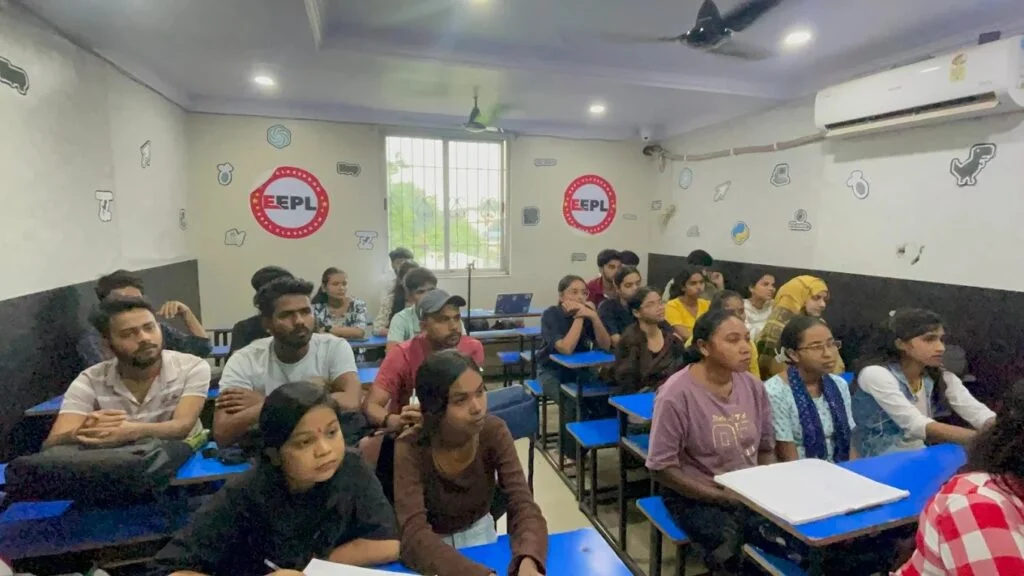1. Understand the Syllabus and Weightage
The CBSE Chemistry syllabus is divided into Physical Chemistry, Organic Chemistry, and Inorganic Chemistry. Allocate time based on the weightage of each section:
- Physical Chemistry: Numerical-heavy and concept-driven, including topics like Electrochemistry and Solutions.
- Organic Chemistry: Focus on mechanisms, named reactions, and conversions.
- Inorganic Chemistry: Memorization is key, especially for topics like the p-block, d-block, and coordination compounds.
Chapter-Wise Weightage (Approximate):
- Solid State, Solutions, Electrochemistry: ~23 marks
- p-block, d- & f-block Elements, Coordination Compounds: ~19 marks
- Organic Chemistry: ~28 marks
- Surface Chemistry, Polymers, and Biomolecules: ~10 marks
Refer to the latest CBSE syllabus for exact details to prioritize topics.
2. Build a Strong Foundation with NCERT
The NCERT textbook is your ultimate guide. Most CBSE questions are directly based on NCERT content. Follow these steps:
- Read Line by Line: Ensure you understand the theory and definitions.
- Solve All Questions: Attempt in-text and end-of-chapter exercises.
- Highlight Important Concepts: Keep track of named reactions, formulas, and exceptions.
3. Master Organic Chemistry
Organic Chemistry is often considered tricky. Here’s how to tackle it:
- Memorize reaction mechanisms and intermediates.
- Use flowcharts for conversions (e.g., ethanol to ethanoic acid).
- Practice the IUPAC naming conventions thoroughly.
- Solve previous year questions to identify commonly asked reactions.
4. Practice Numerical Problems
Numerical questions are common in Physical Chemistry. Focus on:
- Formulas: Memorize all formulas and understand their derivations.
- Units and Conversions: Pay attention to SI units during calculations.
- Sample Papers: Practice numericals from topics like Mole Concept, Electrochemistry, and Chemical Kinetics.
5. Revise Inorganic Chemistry Regularly
Since this section relies heavily on memorization, regular revision is crucial.
- Focus on the trends in the periodic table and their applications.
- Study the p-block and d-block elements in detail.
- Use mnemonics to remember complex details.
6. Solve Previous Year Papers
Practicing past papers helps you:
- Familiarize yourself with the exam pattern.
- Identify frequently asked questions.
- Improve speed and accuracy.
Aim to complete at least 5–10 previous year question papers before the exam.
7. Create Handy Notes
Make concise notes for quick revision. Include:
- Formulas and their applications.
- Key reactions with mechanisms.
- Diagrams and flowcharts for complex topics like coordination chemistry.
8. Time Management Tips for the Exam
- Allocate 15 minutes for reading the question paper.
- Attempt theoretical questions first and numerical problems later.
- Stick to the word limit for short-answer questions.
- Revise answers in the last 10–15 minutes.
How to Prepare for Your Class 12 CBSE Chemistry Boards
Chemistry is one of the most scoring yet challenging subjects in the Class 12 CBSE board exams. With a balance of theoretical concepts and numerical problems, it requires a strategic approach to ensure success. Here’s a step-by-step guide to help you ace your Chemistry exam with confidence.
1. Understand the Syllabus and Weightage
The CBSE Chemistry syllabus is divided into Physical Chemistry, Organic Chemistry, and Inorganic Chemistry. Allocate time based on the weightage of each section:
- Physical Chemistry: Numerical-heavy and concept-driven, including topics like Electrochemistry and Solutions.
- Organic Chemistry: Focus on mechanisms, named reactions, and conversions.
- Inorganic Chemistry: Memorization is key, especially for topics like the p-block, d-block, and coordination compounds.
Chapter-Wise Weightage (Approximate):
- Solid State, Solutions, Electrochemistry: ~23 marks
- p-block, d- & f-block Elements, Coordination Compounds: ~19 marks
- Organic Chemistry: ~28 marks
- Surface Chemistry, Polymers, and Biomolecules: ~10 marks
Refer to the latest CBSE syllabus for exact details to prioritize topics.
2. Build a Strong Foundation with NCERT
The NCERT textbook is your ultimate guide. Most CBSE questions are directly based on NCERT content. Follow these steps:
- Read Line by Line: Ensure you understand the theory and definitions.
- Solve All Questions: Attempt in-text and end-of-chapter exercises.
- Highlight Important Concepts: Keep track of named reactions, formulas, and exceptions.
3. Master Organic Chemistry
Organic Chemistry is often considered tricky. Here’s how to tackle it:
- Memorize reaction mechanisms and intermediates.
- Use flowcharts for conversions (e.g., ethanol to ethanoic acid).
- Practice the IUPAC naming conventions thoroughly.
- Solve previous year questions to identify commonly asked reactions.
4. Practice Numerical Problems
Numerical questions are common in Physical Chemistry. Focus on:
- Formulas: Memorize all formulas and understand their derivations.
- Units and Conversions: Pay attention to SI units during calculations.
- Sample Papers: Practice numericals from topics like Mole Concept, Electrochemistry, and Chemical Kinetics.
5. Revise Inorganic Chemistry Regularly
Since this section relies heavily on memorization, regular revision is crucial.
- Focus on the trends in the periodic table and their applications.
- Study the p-block and d-block elements in detail.
- Use mnemonics to remember complex details.
6. Solve Previous Year Papers
Practicing past papers helps you:
- Familiarize yourself with the exam pattern.
- Identify frequently asked questions.
- Improve speed and accuracy.
Aim to complete at least 5–10 previous year question papers before the exam.
7. Create Handy Notes
Make concise notes for quick revision. Include:
- Formulas and their applications.
- Key reactions with mechanisms.
- Diagrams and flowcharts for complex topics like coordination chemistry.
8. Time Management Tips for the Exam
- Allocate 15 minutes for reading the question paper.
- Attempt theoretical questions first and numerical problems later.
- Stick to the word limit for short-answer questions.
- Revise answers in the last 10–15 minutes.
9. Use Online Resources and Mock Tests
Platforms like EEPL Classes offer expert-curated content and mock tests designed to mimic the CBSE exam pattern. Regular practice with these tests can boost your confidence and pinpoint areas needing improvement.
10. Stay Healthy and Confident
- Maintain a balanced diet and stay hydrated.
- Avoid last-minute cramming; focus on consistent revision.
- Practice relaxation techniques like deep breathing to manage stress.
Final Words
Preparing for the Class 12 CBSE Chemistry board exam requires dedication and a clear strategy. Stick to the basics, practice regularly, and trust your preparation. With the right effort, success is inevitable.
For more tips and resources, visit EEPL Classes and make your board exam journey smoother and more productive!










